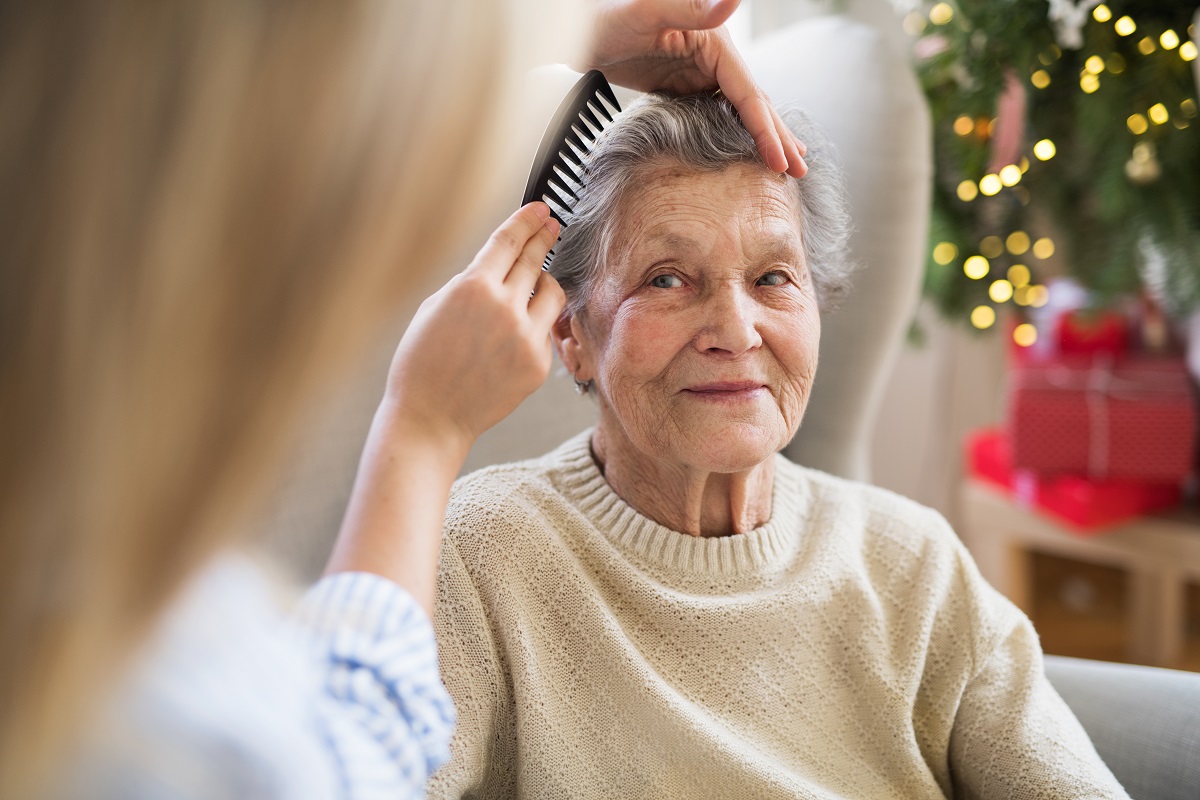Feel rested and relaxed when you have dementia
Does your loved one look permanently exhausted, yet seems reluctant to sit down and relax? Find out how to help someone with dementia get their R’n’R…
Three signs the person you’re caring for is well rested
1. They have enough energy to get through the day without needing to have naps all the time.
2. They feel calm and content.
3. They rarely get restless or experience ‘sundowning’ at the end of the day.
Feeling well rested is intrinsically linked with health, wellbeing and quality of life. But for someone with dementia, it can be particularly tricky as the condition can affect their sleep and mean they’re up for hours during the night.
Obstacles to feeling well rested
– Poor sleep
– Restlessness
– Forgetfulness & confusion
As you get older, you may find you sleep less and it’s more disrupted. We’re not entirely sure why this happens, particularly for people with dementia, but it’s thought to be related to changes in the brain.
Tips to help someone feel well rested
While a certain amount of sleep disturbance may still occur, there are steps you can take to help the person you care for feel as rested and relaxed as possible.
Bedtime routine
Try to keep the same bedtime each evening – routines will help people with dementia feel secure and contented. You could always finish the night off with a milky drink, listening to some music or doing some reading, and a warm bath. Keep this routine and each step will act as a sleep cue.
Good sleep environment
Ensure that their bedroom is a relaxing and comfortable space. Make sure they have what they need near to their bed – a glass or bottle of water, a lamp that is easy to operate in the night if they need to get up, and a clock (preferably a dementia-friendly one) so they can see what time it is. Check the temperature isn’t too warm or too cold and that they can get out of bed and make their way to the bathroom easily with rails, signs and lighting.
Daily exercise or excursion
Getting outside each day can be a great way of ensuring a better night’s sleep. It can also help to reduce restlessness and the problem of sundowning.
Relaxation and massage
Touch is a very powerful therapy, and especially so for people with dementia. It can help them feel connected and can also be extremely relaxing. A gentle hand and arm massage could be a great activity to do just before bed or in the evening.
Bright light therapy
This is where someone will sit in front of a very bright lamp (which gives off a light that is around 30 times brighter than a standard lamp) for a short time each day to help regulate their sleep patterns. It’s often suggested as a treatment for seasonal affective disorder (SAD), where short days during winter months often leaves people feeling depressed and lethargic. One small study showed promising effects of bright light therapy on restlessness and disturbed sleep for people with dementia.
SHARE
Explore more




